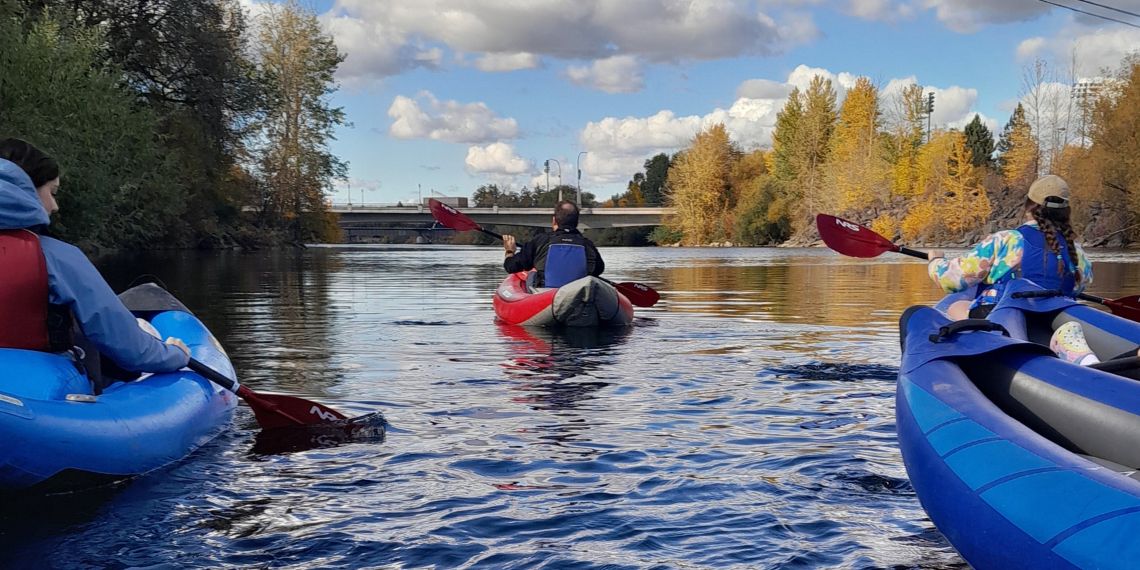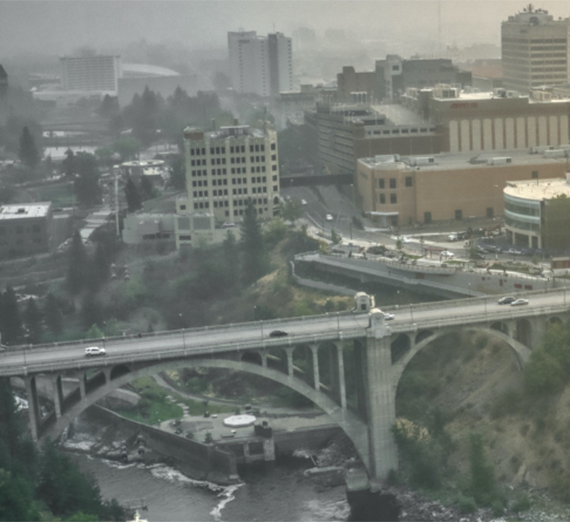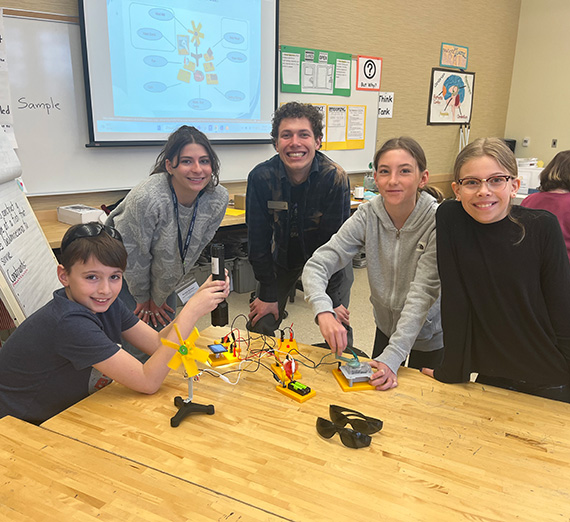Solution Finders
Gonzaga’s Climate Literacy Project equips teachers and students with a strong scientific foundation to understand climate change and its impacts.

Founded in 2021, the Gonzaga Institute for Climate, Water, and the Environment started the Climate Literacy Project. This project helps teachers and students develop a foundational scientific understanding of our changing climate. It also invites reflection on the larger cultural, economic, and ethical issues related to climate change.
As part of the Climate Literacy Project, the Climate Institute and the School of Education have developed a partnership to support pre-service and in-service teachers to understand and teach about climate change.
“We’re looking at issues related to promoting a flourishing region in the face of climate change,” said John Traynor, professor of Teacher Education.

The Climate Literacy Project holds within it a number of programs, including participating in the Climate Teacher Education Collaborative. Founded by the University of Washington, Gonzaga has joined the collaborative to ensure that Gonzaga’s undergraduate teacher candidates understand and can teach climate science in elementary and middle schools.
“Gonzaga students are hungry for the knowledge and resources about climate change and ways to bring it into their future classrooms. The partnership between the Climate Institute and the School of Education is the one way that we are ensuring our graduates have the skills and knowledge to make a lasting impact in their future communities,” Karli Honebein, Climate Literacy Manager, said.
Honebein and Traynor also partnered with Gonzaga Outdoors to provide students an opportunity to bike, hike, or kayak during a class that focused on the organization of outdoor learning experiences.
Since joining the collaborative in 2022, over 200 GU students have learned about climate literacy and taught with more than 900 elementary students using hands-on climate science lessons.
The Climate Literacy Project also hosts a workshop series for cohorts of K-12 in-service teachers focused on exploring the intersections between climate and their teaching practices. These areas include place-based pedagogy, family and community engagement in climate learning, and climate justice.

Teachers are also encouraged to develop student action projects; in the past, teachers have created school gardens and climate sections in their school. At the conclusion of these workshops, teachers are eligible to receive a stipend and a field trip to an outdoor education site, among other resources.
“This work has been a new direction for me professionally,” said Traynor. “It has been exciting.”
In addition to his work with Climate Literacy Project, Traynor engages his students through outdoor education experiences. He worked with Spokane School Districts to host fourth and seventh-graders on an immersive field trip in Riverfront Park centered around the Spokane Expo.
“Given the effects of climate change we’re dealing with, we really need to provide support to teachers and future teachers so they can feel comfortable in engaging their students to learn about it,” Traynor said. “These current students are going to be the solution finders.”
- Academics
- School of Education
- Institute for Climate, Water, and the Environment
- Teacher Education




